
BLOG
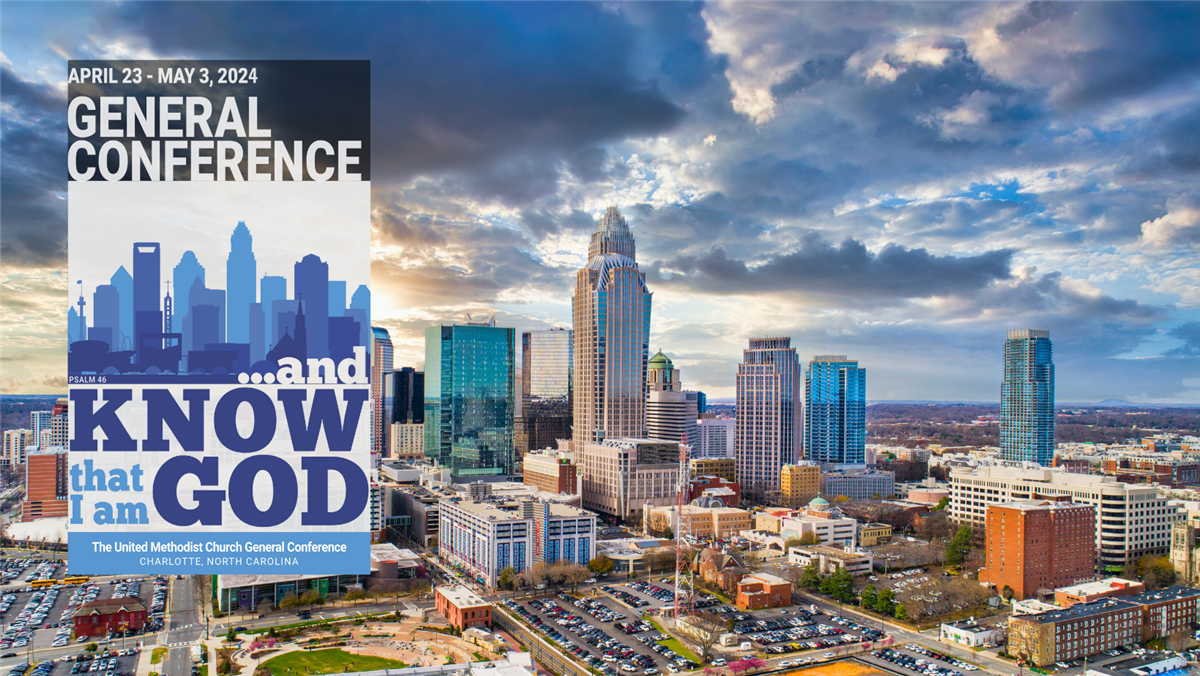
By Signal Crest Account
•
24 Apr, 2024
The General Conference of The United Methodist Church is meeting this week and next week in Charlotte, NC. This global gathering of United Methodists typically meets every four years to establish priorities and shape our denomination’s life together and our witness to the good news of Jesus Christ. This year’s conference is really the originally scheduled 2020 conference that was repeatedly postponed because of the pandemic. There are over 1000 proposals that will be considered at this year’s General Conference, so there’s a lot of work to be done. A couple of the most prominent proposals include a plan for regionalization that would allow different regions of the church around the world to adapt their policies and procedures to their particular contexts and also a revised and updated draft of our Social Principles that speak to the contemporary issues and challenges facing the church and the world. What can you do as the General Conference is conducting their work? Three things: First, we would like to invite you to pray for the General Conference as they are doing their important work, which is all aimed at helping our churches accomplish our mission of making disciples of Jesus Christ for the transformation of the world. Here are some specific ways you can pray: Pray for our fourteen lay and clergy delegates from Holston Conference. Pray for the more than 800 delegates from all over the world. Pray that all that they do is done in love. Pray that they conduct themselves with mutual respect. Pray for wisdom and discernment as discussions are had and decisions are made. Pray for the bishops who are presiding during the conference. Pray for the worship teams and leaders who are guiding the work of the conference. Pray for all the staff and volunteers in Charlotte who are serving in so many ways. Second, we invite you to stay informed and follow the news from the General Conference. You can see the schedule, watch the livestream, and read reports at www.resourceumc.org. You can also stay updated on news from the General Conference at umnews.org. Third, you can keep the “General Rules” that we have been exploring in worship this month, these three simple rules that John Wesley developed back in the 18th century for Methodists: (1) Do no harm, (2) Do good, and (3) Stay in love with God. These rules to live by should always characterize our life in Christ and our love for God and for others as for ourselves. As always, if you have any questions about the General Conference in general or how its decisions will impact Signal Crest in particular, please reach out to Pastors Dave or Bill.

By Signal Crest Account
•
17 Apr, 2024
The Masters golf tournament was held this past weekend in Augusta, Georgia. The Masters is one of the men’s tour’s four annual major tournaments. It’s held every year at the august Augusta National Golf Club, which is sometimes referred to as the cathedral of golf. I certainly consider it a “holey” site. Tracy and I enjoyed the opportunity several years ago to attend one of the practice rounds. The beauty of the course is absolutely breathtaking. Every blade of grass is perfectly coiffed. The azaleas seem to bloom on cue. Even the pine straw under the trees is evenly spread. The winner of this year’s tournament was Scottie Scheffler. It was a commanding victory. He won by four strokes. This is his second green jacket (which the winners receive); the first was two years ago. His wife Meredith is expecting their first child in a matter of weeks. Scottie had said that if he had gotten the call that the baby was coming, he’d have left the tournament, even if he were in the lead. Luckily for him, it didn’t come to that. Scottie is a Christ-follower who talks about his faith fairly openly. So I was particularly impressed with his press conference after the tournament. He described how he was talking with some of his buddies the morning of the final round about how badly he wanted to win. His buddies reminded him that no matter what happened, “my victory was secure on the cross. And that’s a pretty special feeling to know that I’m secure forever and it doesn’t matter if I win this tournament or lose this tournament. My identity is secure forever.” That is a pretty special feeling to know that, isn’t it? To know that our identity is secure, forever, through the cross, through our faith in Christ. He promises the ultimate, eternal victory. No matter the ups and downs, the wins and losses in our own lives, Christ is the core of who we are. That’s what our baptism affirms is true of us. That is what our confirmation confirms is true of us. That is something we can remember and celebrate every day of our lives. As the Apostle Paul put it, you are a child of God, “and if a child then also an heir of God through Christ” (Galatians 4:7). Our identity is secure in Christ forever. We have the Master’s word on it.
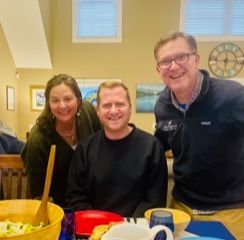
By Signal Crest Account
•
11 Apr, 2024
This week we enjoyed an overnight visit with a friend and former parishioner from England. John was a 14-year-old member of one of the five churches I served for a year in Cornwall, England, when I was fresh out of seminary. John is now a journalist living in London. He currently covers politics for The Mirror and has met prime ministers and traveled all over the world. His office is in the Parliament building (Big Ben!). He attends a church in the neighborhood where he now lives. We have kept up with each other over the years on social media. Back in 2011, John was visiting the US and came to visit us when we were living in Knoxville. This past weekend, John was in Nashville visiting some friends, and he saw that we weren’t living too far away. So after taking in the downtown Nashville scene and then visiting Dollywood on Sunday, he came to see us. We caught up on his family, our family, and the church in the village where he grew up (a church called Wesley Rock, not because of its preference in worship music but because its pulpit is built on top of a big granite boulder that John Wesley preached from when he visited the area in the 1700s). I took him to the brow (too bad the W road was closed). I toured him through the church and introduced him to some of the staff. We enjoyed some meals together, and then he headed back to Nashville to fly back home. Do you ever marvel at how you have come to know some of the people you know? For example, how on earth is it possible that I know a British political reporter like John? How is it, for that matter, that I know a Grammy-winning church musician like our organist Michael Huseman? How is it that I know a downtown high school baseball coach and community organizer who also serves as our church’s youth director, Drew Barton? How is it that I know someone like Lou Maynard who has taught Sunday school to children and visited church members in their homes for over 60 years? How is it, for that matter, that I know you and that you know me? The answer is the church. The church is the common thread across so many of the people that I have come to know, that I probably wouldn’t ever have come to know if it hadn’t been for the church—the family of faith in Christ across time and place and even across “the pond.” Jesus was once told that his family was outside waiting for him. He asked, “Who is my family?” And he looked around at those who were with him and said, essentially, “here is my family. Whoever does the will of God is my family” (Mark 3:31-35). I am so thankful for my family in Christ and for the bonds that we share as brothers and sisters together in him. How blessed indeed are the ties that bind our hearts in Christian love. Who are you thankful for this day? Who comes to your mind that you haven’t you seen or talked to in some time? How might you reconnect with them? I hope you will find a way to do so. I can tell you it might just make your day.
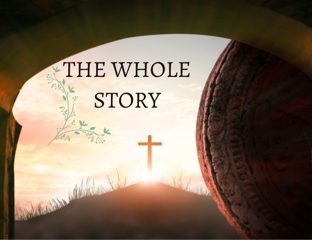
By Signal Crest Account
•
03 Apr, 2024
For this week’s midweek meditation, I’d like to share with you our bishop’s Easter reflections which she posted on the conference’s website at www.holston.org . She concludes with a question worthy of all our prayerful reflection: “How is the whole story of Jesus’ life, death, and resurrection shaping you?” — In re-reading the Holy Week narrative this weekend, I was reminded of the importance of knowing the whole story! Indeed, if the Good News stopped with Palm Sunday, we would ask with the crowd, “Who is this?” (Matthew 21:10 NRSV) If it ended with the betrayal, we would be left with the question, “Is it I?” ringing in our ears. (Matthew 26:22 NKJV) If it concluded with Jesus’ crucifixion, the words of Pilate would haunt us. “Why, what evil has he done?” (Matthew 27:23a) But none of these events are the final word about Jesus. Rather, on Easter Sunday 2024 we celebrate the reality that the whole story includes the Resurrection, which changes the trajectory of our lives and world. Back to the Holy Week narrative as described in the Gospels. It had been a week like no other for Jesus’ disciples. Everything had started out great, with the crowds proclaiming Jesus as their king. As he entered Jerusalem on a donkey they shouted, “Hosanna! Blessed is he who comes in the name of the Lord! Blessed is the king of Israel!” (John 12:12-13 NRSV) What a high moment! However, this only added to the tension that already existed between Jesus and the leaders of the day. One thing led to another and by Thursday evening, the chain of events that would result in Jesus’ death was set off when Judas Iscariot, one of Jesus’ disciples and close friends, led the Roman soldiers to the Garden of Gethsemane where Jesus was praying. The betrayal resulted in Jesus’ arrest followed by the false accusations, trial, torture, and crucifixion in the course of 24 hours. After his death on the cross, Jesus was placed in a new tomb owned by Joseph of Arimathea. Praise God, the story did not stop with the burial, though. Instead, on the third day, Jesus’ followers discovered that the tomb was empty, and Jesus had risen from the dead! They even had the opportunity to converse with their Risen Savior on several occasions during the forty days between his Resurrection and Ascension to heaven. In that period, they began to understand the whole story, including a more complete meaning of Jesus’ life and teachings. The whole story continues to unfold today. The Risen Jesus is accessible to us through the Holy Spirit 24/7 . . . offers grace upon grace for the missteps, wrong turns and sin in our lives . . . loves us unconditionally . . . and is continually transforming his followers into faithful disciples who make a difference in the world. The whole story runs like a thread through every aspect of the lives of his followers, from start to finish. Here is a question I invite you to join me in asking as we consider the whole story this Easter season. “How is the whole story of Jesus’ life, death, and resurrection shaping you?” May we gain a fresh perspective on our current reality as well as our hopes for the future by reflecting on the whole story of Jesus. As always, it is a joy to serve as your bishop. Blessings, Debra Wallace-Padgett Resident Bishop Holston and North Alabama Conferences
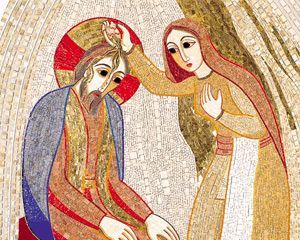
By Signal Crest Account
•
27 Mar, 2024
Today is the Wednesday of Holy Week. Today isn’t one of those days in Holy Week that gets its own special adjective, like Palm Sunday or Maundy Thursday or Good Friday. But according to Mark’s telling of the story, something rather significant happened on this day that Jesus wanted the world to remember—a woman anointed him with expensive perfume (Mark 14:3–9). Jesus is at the home of a man named Simon who had leprosy. Because of Simon’s condition, he probably was supposed to be quarantined, but he was having company over for a dinner party. In the middle of the meal, a woman—we don’t know her name—brings out an alabaster jar full of an expensive imported perfume called nard. She breaks open the jar and pours the perfume on Jesus’ head. Some of the others who are there take offense at the wastefulness of this extravagance. The perfume could have been sold and the money given to the poor, they say, and they scold her (literally, they “snort” at her). But Jesus tells them to leave her alone, that they’ll always have the poor with them, but they won’t always have him. “She has done what she could,” he tells them. “She has anointed my body beforehand for its burial. Truly I tell you, wherever the good news is proclaimed in the world, what she has done will be told in remembrance of her” (Mark 14:8–9). That’s pretty high praise! But what was so special about what she did that is worthy of the church’s perpetual remembrance of her? We call Jesus the Christ, the Messiah. And both of those words mean the same thing—anointed. And the thing is, this story is Jesus’ anointing. It’s his christening. Early in each of the four Gospels, Jesus is baptized, but it’s not clear that he is being anointed. Jesus himself uses that term in his sermon in his hometown synagogue when he quotes from the prophet Isaiah who wrote that “the Spirit of the Lord is upon me, because he has anointed me to bring good news to the poor…to proclaim release to the captives and recovery of sight to the blind, to let the oppressed go free, to proclaim the year of the Lord’s favor” (Luke 4:18–19). But Jesus himself is not actually anointed by anyone until this moment, by this anonymous woman, in the home of a leper, on the day before the day before he dies and is buried. She is the one who anoints him, christens him as the Christ, the Messiah. “She has anointed my body beforehand,” Jesus says, “for its burial.” I wonder if she knew, if she really knew, what she was doing. Had she heard Jesus talk about how he was going to be betrayed, arrested, tried and condemned to death, and then rise again on the third day? He’d told his disciples all that. But none of them did what she did. None of them anointed him like she did. And she did it without being told to do it. She just did it. Jesus also says that “she has done what she could.” She’s certainly done a lot more than some others maybe could have done. That jar of perfume was worth a year’s wages. But it’s not the dollar amount that matters. The day before this, Jesus watched a widow drop two copper coins worth a penny into the offering at the Temple, and he knew she’d “put in everything she had, all she had to live on” (Mark 12:44). She did what she could, too. I wonder: Will Jesus be able to say the same of each of us, that we have done what we could?
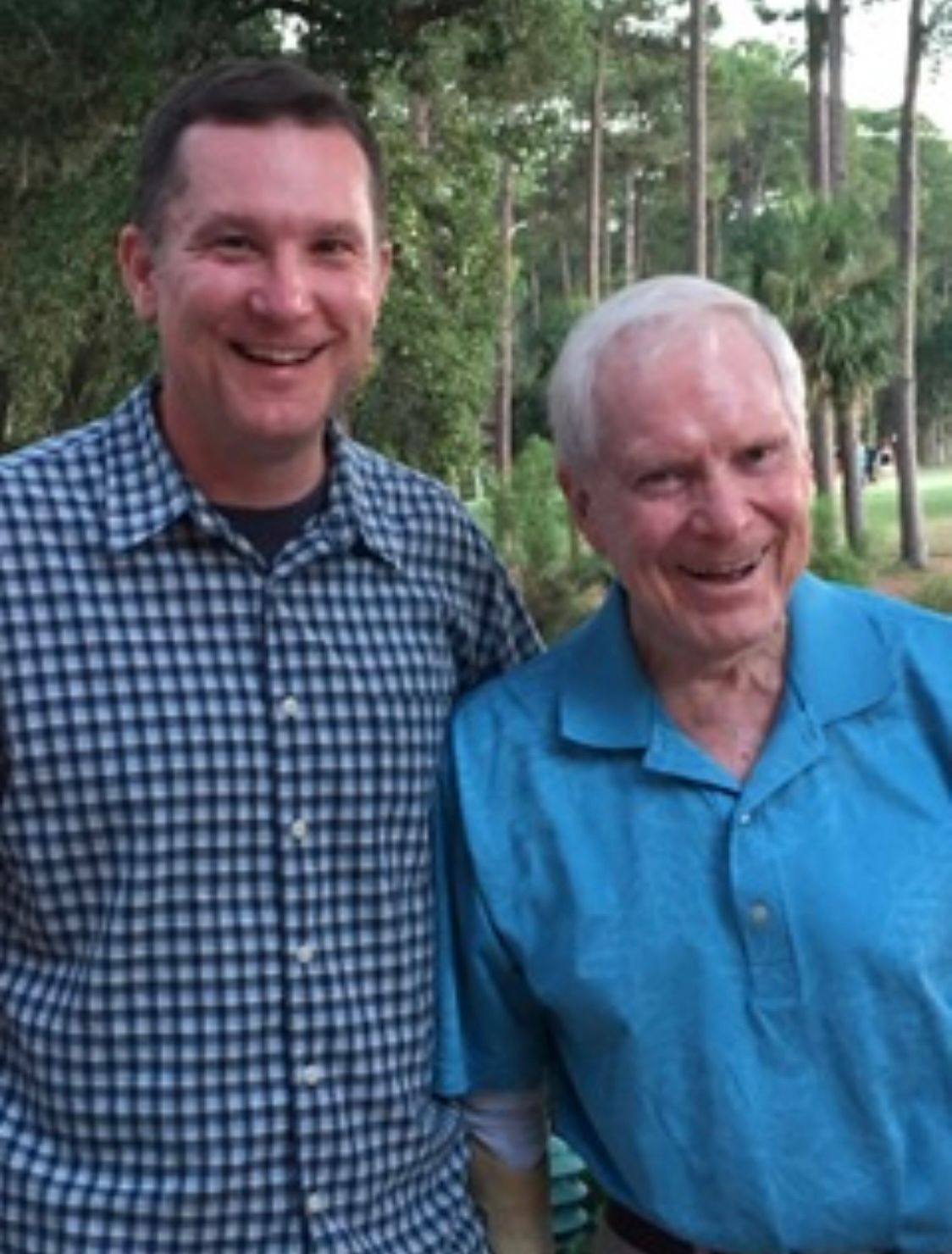
By Signal Crest Account
•
20 Mar, 2024
This past weekend, my uncle Pat passed away one day shy of his 92nd birthday. He was born on St. Patrick’s Day, so even though Patrick was his middle name, Pat was the name he was known by throughout his life. He was the youngest of six and the last remaining sibling of my dad. Pat was a remarkable man, and he lived a remarkable life. He got a scholarship to play the tuba in college. He served as an officer in the Navy. He went to law school and served for 25 years as a prosecuting attorney and then for another 18 as a judge. He was married to my aunt Jill for 70 years. He was a faithful member of the church choir which his wife often directed. He was a popular public speaker. He had a fabulous sense of humor, a smile that went from ear to ear, and he loved telling stories. Fifty years ago, Uncle Pat survived an attempt on his life. One of the people that he had prosecuted years before for murder got out of prison on parole and planted a homemade bomb in a Pringles potato chip can on the hood of their family car. Pat assumed Jill or one of their young daughters had left it there after grocery shopping. When he picked it up, it exploded. He lost both of his arms, had burns on his face and chest, and had shrapnel in his eyes. During several months of recovery, he was fitted for prosthetic arms which had metal hooks for his hands. He learned how to write, how to drive, and how to get dressed and do most of the things he needed to do. After four months, he was back at work, and he went on to work another nearly 35 years. A few years back, he wrote up his memoirs in a book he called Justice and Luck. In that book, he described his faith. “Faith came early,” he wrote. “During childhood, any of us had to be genuinely ill to miss a service at the Methodist Church. I’ve been a willing churchgoer since” (5-6). When he was asked how the bombing had affected his religious faith, he wrote, “the experience affirmed it. I regained sight, hearing, the ability to work. My life could go on. Jill and our daughters were unharmed. My faith was strengthened” (42). Pat has been a model for me and for many others that it is not so much the things that happen to us, but how we respond to them, that makes the difference. One of my favorite stories about Uncle Pat is how his wedding ring that they thought they’d lost forever was recovered over thirty years after the bombing. The folks that were living in their old house discovered it when they were out raking leaves in the front yard, and they recognized the initials that were on the inscription. Pat wrote that “this seemed like a miracle to me. It was pretty emotional. Yet I believe in miracles, and have for a long time. I’ve had several in my life, and this was another one” (72). He closed his memoir with the words, “I’m one of the luckiest people who ever lived” (76). O for all of us to live our lives with such a profound sense of gratitude, not only for the blessings in our lives, but for the blessing of life itself, and to be able to say, even amidst the difficult days, thanks be to God.

By Signal Crest Account
•
13 Mar, 2024
Today marks the first anniversary since my mom died. The first anniversary of a loved one’s death is a significant date. It means we have grieved through the first birthday, wedding anniversary, Thanksgiving, Christmas, Easter, and other special days without them physically present in our lives. This is one of those many days for which I am grateful for the liturgy of the church, for words that are available for us to borrow, words that help give voice to what is on our hearts and minds. This prayer, “On the Anniversary of a Death,” is from our United Methodist Book of Worship, #548. These are words that I have borrowed many times over the years; Tracy and I incorporated them into our wedding ceremony in memory of her mom. These are also words that I have shared with many others as they have marked the anniversaries of the deaths of their loved ones. I share them with you here today, trusting that these words might bless you in your own remembrances of loved ones. Everliving God, this day revives in us memories of loved ones who are no more. What happiness we shared when they walked among us. What joy, when, loving and being loved, we lived our lives together. Their memory is a blessing for ever. Months or years may have passed, and still we feel near to them. Our hearts yearn for them. Though the bitter grief has softened, a duller pain abides; for the place where once they stood is empty now. The links of life are broken, but the links of love and longing cannot break. Their souls are bound up in ours for ever. We see them now with the eye of memory, their faults forgiven, their virtues grown larger. So does goodness live, and weakness fade from sight. We remember them with gratitude and bless their names. Their memory is a blessing for ever. And we remember as well the members who but yesterday were part of our congregation and community. To all who cared for us and labored for all people, we pay tribute. May we prove worthy of carrying on the tradition of our faith, for now the task is ours. Their souls are bound up in ours for ever. We give you thanks that they now live and reign with you. As a great cloud of witnesses, they surround us with their blessings, and offer you hymns of praise and thanksgiving. They are alive for ever more. Amen.
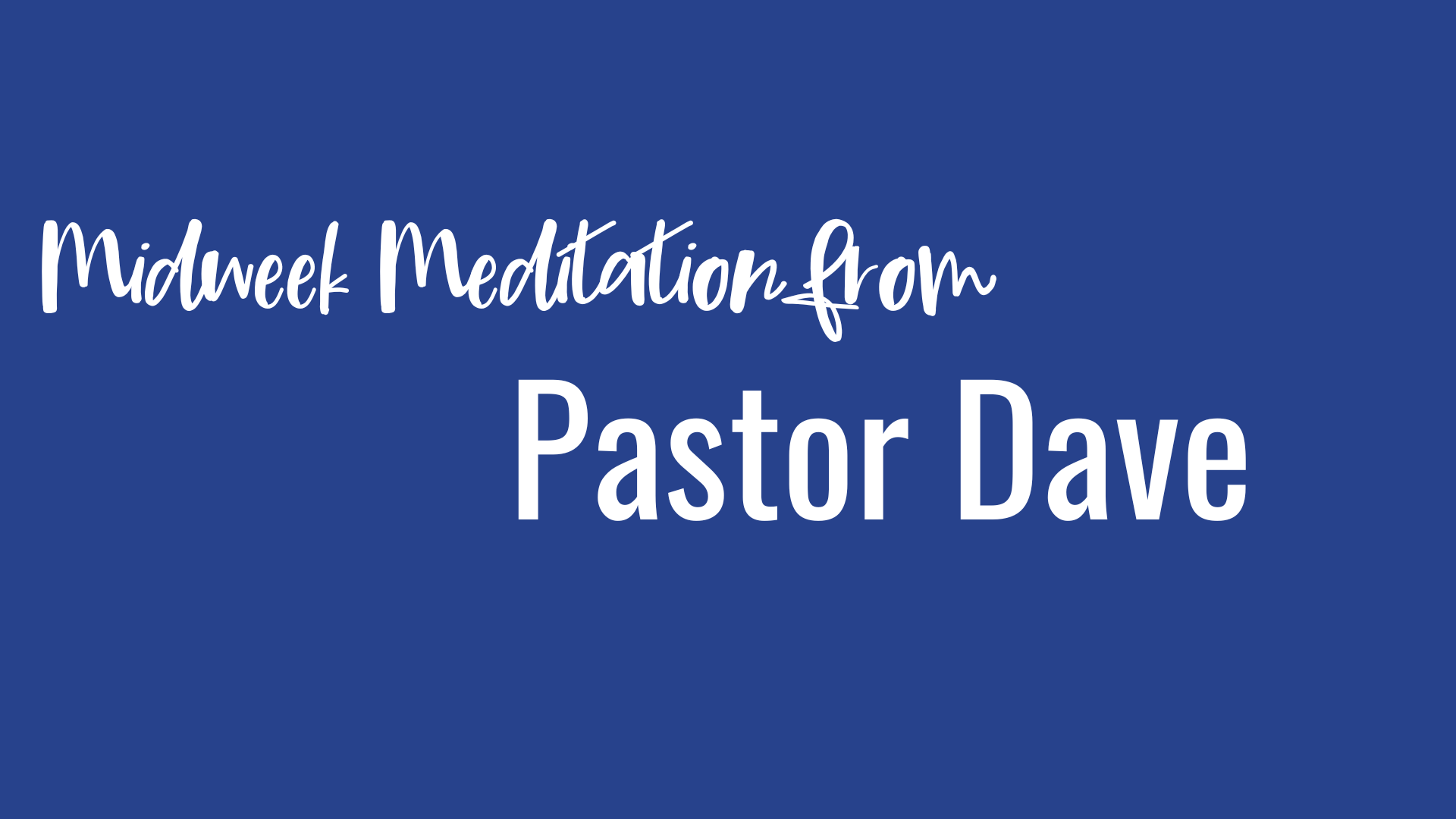
By Signal Crest Account
•
07 Mar, 2024
In the spirit of the annual “State of the Union” address that our president will be offering this week, I’d like to offer a “State of the Church” report, which summarizes our 2023 year-end reports that we recently submitted to our conference and that I shared with our Church Council a few weeks ago. By nearly every measure, 2023 was a strong year. We gained 28 new members (10 by profession of faith and 18 by transfer from another church). We lost 15 members (11 of whom died, 3 transferred to another church, and one withdrew). This yielded a net increase of 13 in our membership, from 1197 to 1210. So far in 2024, we have received 9 new members. Our average worship attendance continues to bounce back from the pandemic drop. We increased 12% from the previous year from 201 to 226 on average in our weekly worship services. Thank you all who make being present in worship, whether online or onsite, a priority, and who invite others to come worship with you. Deep spiritual transformation takes place best in our small group ministries. Our number of and participation in small groups (Sunday school classes, Bible studies, fellowship groups, etc.) remained roughly the same, though there were some increases in some areas (children, college and young adults) and decreases in others (youth, women’s groups). Thank you to all who lead or are involved in one or more of our small groups here at the church. The mission and outreach of our church expanded significantly over this past year. With the launch of the MLK Day of Service, our home repair team, and our partnership with the Signal Mountain recovery ministry, we saw a net increase in our overall opportunities to serve as well as an increase in the estimated number of people serving (200) and the number of people served (600). Our church’s financial support of ministries beyond the local church also increased by 167% for UM-related ministries (like Mustard Tree) and by 29% to non-UM related ministries (like Signal Mountain Social Services). Thanks to all who are the hands and feet of our outreach ministries, and especially to our key leaders in this area – Doranne Lane and Rev. Drew Barton, our Director of Community Connections. Not only have you shared your time and talents in the ministries of this church, but also your treasure – your financial gifts. Over $1 million was given last year to the work God is doing in and through Signal Crest. We spent 45% more on programming (like Vacation Bible School) and 2% less on operating expenses than we did the prior year, which reflects both increased activity and disciplined spending. Our indebtedness on the Crest center is now down to about $900,000. Both memorial giving and special offerings were up 200% over the prior year. Thanks to your faithful generosity as well as the careful management of these resources, the church realized a net gain of about $100,000 after our expenses for the year, which the Church Council voted to move to our designated fund for replacing the sanctuary roof. Thanks to Allison Maynard and our new treasurer Tom Eiseman for compiling the financial records for this report. In sum, nearly all the key indicators of a congregation’s health and vitality are trending in a positive direction. Let’s continue to build on this good momentum and strive in all these ways and more to signal Christ here at Signal Crest.

By Signal Crest Account
•
07 Mar, 2024
The Lord bless you and keep you; the Lord make his face to shine upon you, and be gracious to you; the Lord lift up his countenance upon you, and give you peace. (Numbers 6:24-26 NRSV) If you’re following along with our reading plan to read through the Bible this year, we’ve been spending the past couple of weeks in the book of Numbers. Honestly, it’s probably not the most riveting book in the Bible, with its multiple censuses of the tribes of Israel (hence the book’s name) and its meticulous instructions on sacrifices and offerings. It has a few confusing and outright disturbing passages that I’m still trying to understand. But the passage quoted above is probably the most familiar and most favorite passage from Numbers. This is the so-called “priestly blessing.” The Lord instructed Moses to tell his brother Aaron, who was the head of the priestly lineage, to bless the people of Israel with this blessing. These ancient words were found inscribed on two silver cylinders that date from about 600 years before Jesus. That means these words are the earliest fragments that have been found of any biblical texts. They’re even older than the Dead Sea manuscripts by about 400 years. If you grew up Methodist, you may know these words as the benediction recited at the end of youth group meetings. I sang in the traveling choir in college, and we would always conclude our concerts by singing the composer Peter Lutkin’s choral arrangement of this blessing, with its towering sevenfold “Amen” at the end. Lutkin, however, rearranged the verses in his piece, putting the third verse before the second. So whenever I share this blessing in a service of worship or at a funeral, I have to either look it up or write it down, because the way I’ve sung it mixes up with the way we say it. The people of Israel do a lot of complaining in the book of Numbers as they make their glacial way through the wilderness. They remind me of kids in the car whining about how much further do we have to go. And many times Moses seems like he’d much rather bless them out than bless them. And God’s patience with them gets a little thin a few times, too. But through it all, it’s still this blessing that stands out to me—this pronouncement of the Lord’s protection, attention, and affection. Every day we have a choice about how we will use our words. Will we use our words to complain, to criticize, or to curse others? Or will we choose to use our words to bless others, to build them up, to encourage them? And I don’t mean saying “well, bless their/your heart.” That’s often just a genteel southern way of putting someone down (amiright?) I mean offering someone else a genuine, heartfelt blessing. Especially someone who may least expect it. Even someone who may not necessarily deserve it. And if you don’t know quite what to say, you can borrow these words. After all, they’ve seemed to work pretty well for quite a while.
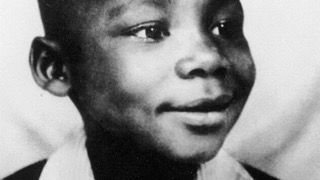
By Signal Crest Account
•
21 Feb, 2024
I’m in the midst of reading the monumental new biography of the Rev. Dr. Martin Luther King, Jr., by Jonathan Eig that came out last year (King: A Life). One of the stories I have especially enjoyed learning was how young MLK determined it was time he was baptized. King grew up a PK – a “preacher’s kid.” His dad was the preacher at Ebenezer Baptist Church in Atlanta, where Martin would later serve. In the spring of 1936, when Martin was seven years old, an evangelist from Detroit, Rev. H.H. Coleman, came to Ebenezer to lead a two-week revival. During one of the services, he invited any of the children who wanted to accept Jesus to come forward. Martin’s older sister Christine was one of the first to go forward. Martin felt like he couldn’t let her get ahead of him, so he went forward, too. Even though he probably would have eventually professed his faith in Christ and been baptized into the church, having grown up in a pastor’s family, this was a spontaneous and unplanned event in his life. He later reflected on his baptism, recalling “I had never given this matter a thought, and even at the time of my baptism I was unaware of what was taking place” (p. 33). He went on to say he realized that “I joined the church not out of dynamic conviction, but out of a childhood desire to keep up with my sister” (p. 34). How about that! The preeminent civil rights leader of the 20th century sought to be baptized, not out of a strong sense of calling or conviction, but out of a younger brother’s competitiveness to try to keep up with his big sister! Do you know the story of your baptism? Maybe you, too, were caught up in the moment of a revival or special worship service. Maybe you were trying to go along with someone else. Maybe it was dramatic and decisive, a sense of the Spirit’s conviction. Or maybe it was simply your parents brought you before the church to get baptized when you were a baby. That’s my story. I was baptized when I was eight months old. I can relate to part of what Martin said of his own baptism: “I was unaware of what was taking place.” But then again, who among us is really ever fully aware of what is taking place at our baptism? Or maybe you haven’t been baptized, but you’re experiencing a “sprinkling” of interest in it. If so, let me know, and we can talk about how your baptism story might unfold. But regardless of the age at which we are baptized, or the way, or the reason, it marks the beginning of a faith journey that is meant to carry us through the rest of our lives. And just like young Martin could not have seen at the tender age of seven where his life would take him or what God would accomplish through him, none of us knows where our faith might lead us and what difference it might make to us ourselves to others.
Blog Topics
Related Pages
Downloads
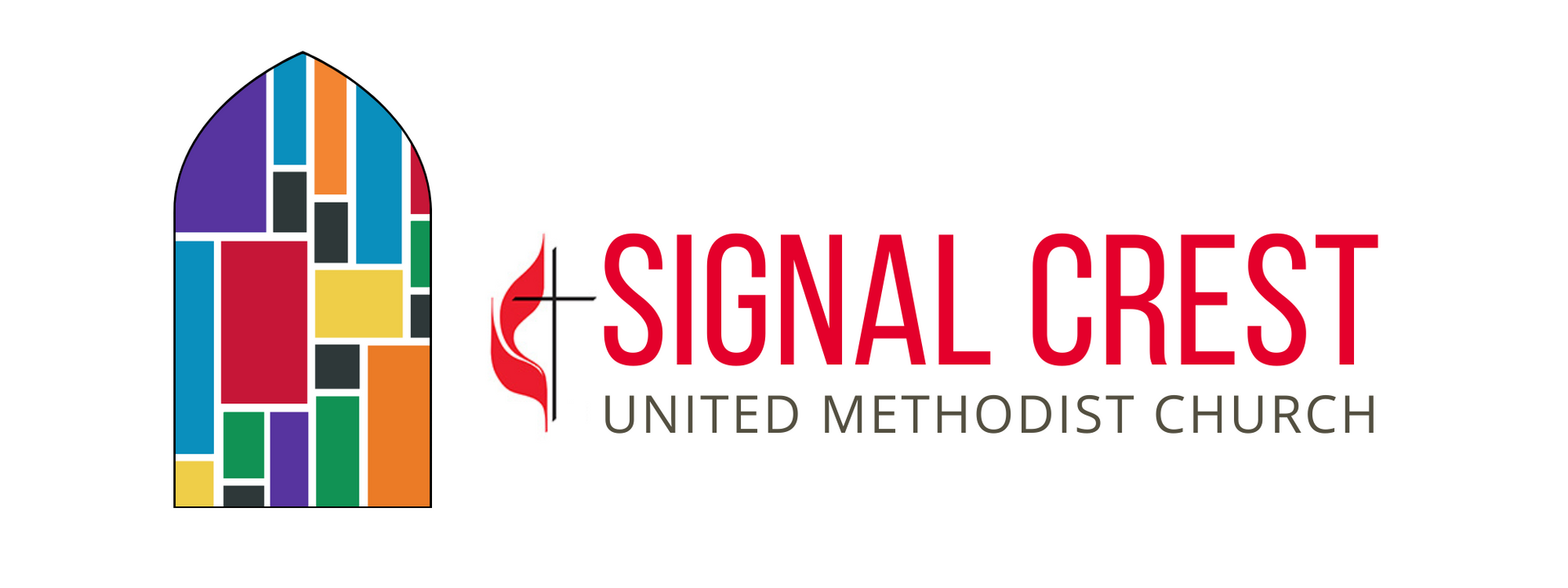
Signal Crest United Methodist Church
1005 Ridgeway Avenue
Signal Mountain, TN 37377
Phone: 423-886-2330
Fax: 423-886-6919
© 2024
All Rights Reserved | Powered by LiftNXT